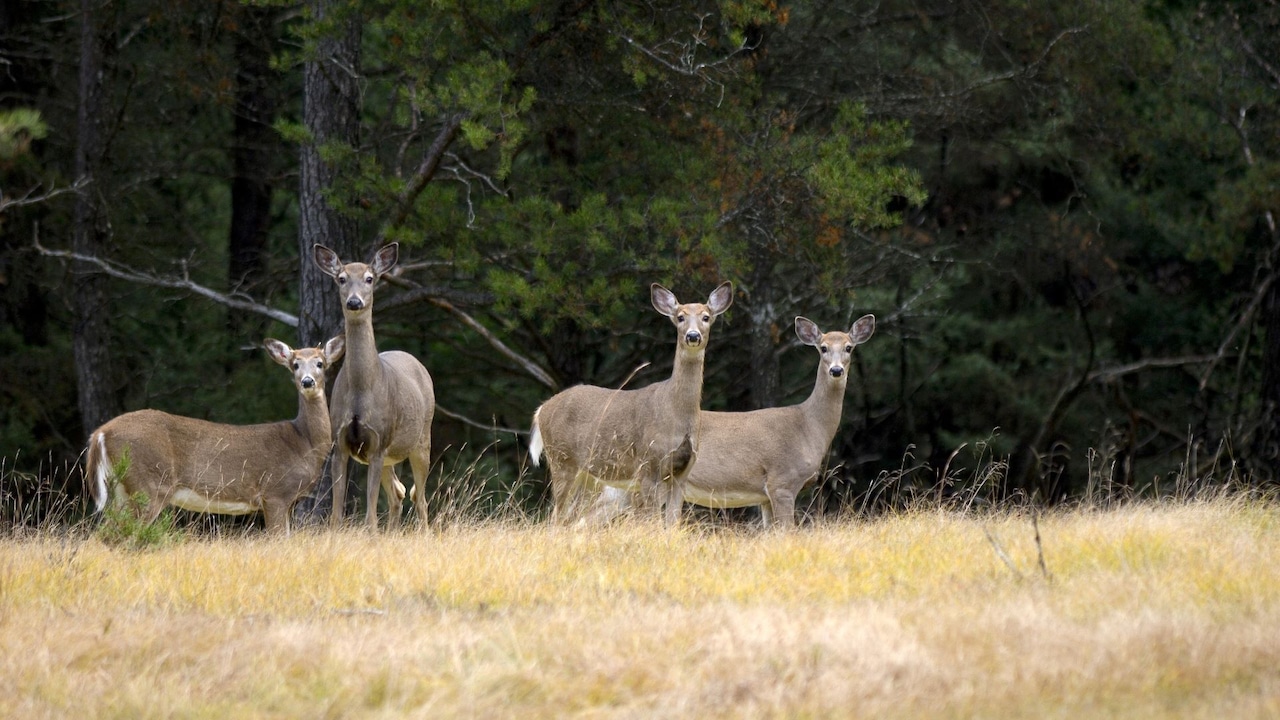GENESEE COUNTY, MI – The Michigan Department of Natural Resources has reported the first case of chronic wasting disease in a deer in Genesee County.
A 2.5-year-old doe tested positive after it walked up to a conservation officer who’d responded to a public report in Gaines Township.
The deer that tested positive was reported as very skinny and drinking continuously, according to a Wednesday, Sept. 24 news release from the DNR.
The finding was confirmed by the Michigan State University Veterinary Diagnostic Laboratory, which works with the DNR to identify CWD in Michigan’s wild deer herd.
The sample will be sent to the U.S. Department of Agriculture’s National Veterinary Services Laboratory in Ames, Iowa for secondary confirmation, per the release.
Chronic wasting disease, or CWD, is a fatal neurological disease affecting white-tailed deer, elk and moose. It can be present in new areas at very low levels, making it difficult to detect.
The DNR began a rotational approach to testing harvested deer in 2021.
A group of counties is selected each year, with the eventual aim of testing enough deer in every Michigan county with the goal of early disease detection, as management has the potential to be most effective when the disease is caught early.
Genesee County was under focused surveillance for CWD in 2022, when approximately 300 deer were tested, with none testing positive. The DNR has continued to test deer that appear sick in Genesee County when possible.
CWD has been detected in 15 additional Michigan counties: Clinton, Dickinson, Eaton, Gratiot, Hillsdale, Ingham, Ionia, Isabella, Jackson, Kent, Mecosta, Midland, Montcalm, Ogemaw and Washtenaw.
Since CWD was first detected in wild deer in 2015, more than 110,000 deer have been tested in Michigan through a variety of efforts, including responding to public reports of sick deer and focused testing of hunter-harvested deer.
More than 144,000 wild deer have been tested through DNR surveillance efforts that started in 2002, with 263 CWD-positive deer identified.
Since direct hunter submissions of deer to MSU Veterinary Diagnostic Laboratory began in 2020, more than 3,200 submitted samples have yielded 56 additional confirmed positives.
“We appreciate the support and cooperation of the public as they continue to report sick deer so our team can follow up with the necessary testing for confirmation,” said Brent Rudolph, DNR deer, elk and moose management specialist, in a statement. “Though many reported deer turn out not to be infected, the care that’s demonstrated when people take the time to share their observations is a critical contribution to our disease-testing efforts.”
Proper disposal of a deer carcass is critical to prevent the spread of chronic wasting disease.
Deer carcasses and parts should go directly to a landfill or be disposed of through regular bagged trash pickup. Deer harvested from known CWD areas should never be disposed of on the landscape.
Free self-sample submission kits are available in all counties outside of the DNR bovine tuberculosis or CWD surveillance areas.
Kits allow hunters to remove lymph nodes and ship them directly to the MSU VDL at no cost.
Hunters can pick up a kit at a local distribution site. If hunters choose not to pick up a kit, testing is available for a fee through direct submission to a cooperating USDA-approved diagnostic laboratory.
To date, there have been no reported cases of CWD infection in people.
However, as a precaution, the U.S. Centers for Disease Control and Prevention recommends that infected animals not be consumed as food by either humans or domestic animals.
For more information on CWD, visit Michigan.gov/CWD.
If you purchase a product or register for an account through a link on our site, we may receive compensation. By using this site, you consent to our User Agreement and agree that your clicks, interactions, and personal information may be collected, recorded, and/or stored by us and social media and other third-party partners in accordance with our Privacy Policy.
